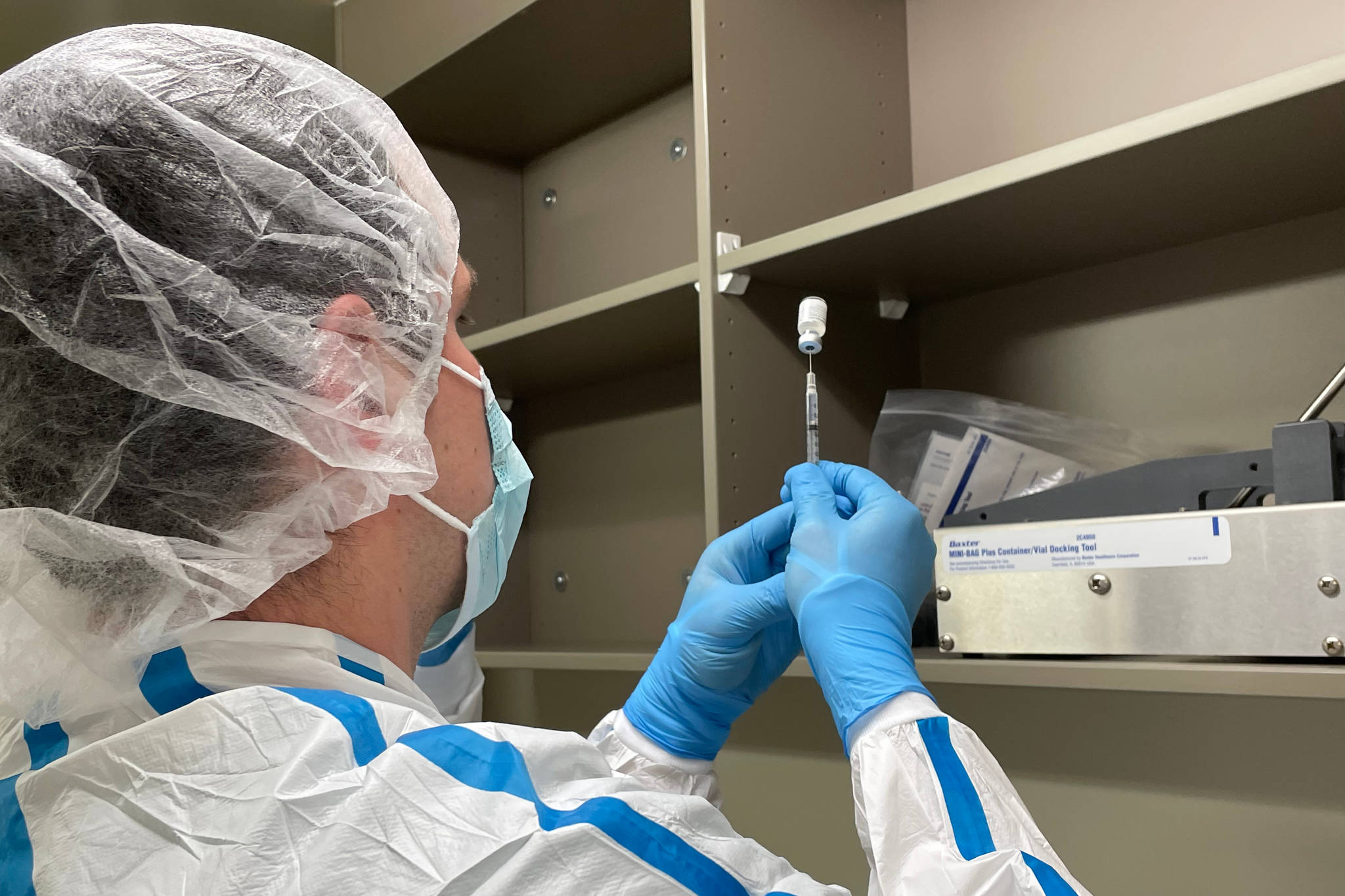After two health care workers at Bartlett Regional Hospital had adverse reactions to the coronavirus vaccine, state medical officials emphasized the anomalous nature and the safeties put in place in a Thursday news conference.
The two reactions came during BRH’s initial series of vaccinations. Health officials said a reaction reported on Tuesday was the first severe adverse reaction in the country. The second, and far more mild reaction, was reported Wednesday evening.
“This is the only known severe reaction we’ve seen in the U.S. There were two in the U.K.,” said Alaska chief medical officer Dr. Anne Zink during the conference. “We are seeing lots of providers and long term care-residents vaccinated across the U.S.”
As of Wednesday, 545 people across Alaska had received the first of two shots in the Pfizer/BioNTech vaccine, Zink said.
“It could be a couple different things,” Zink said. “It’s important to remember the first one was a severe adverse reaction. The second one was much smaller, a minor swelling.”
Apart from that, Zink said, there were no immediately apparent commonalities between the two events that medical experts could discern, or any reason why such a relatively small hospital would have one major and one minor adverse reaction.
[Leading the charge: City welcomes fleet’s 1st electric bus]
“We’re looking to see if it’s something with the batch or vaccine,” Zink said, emphasizing close work with the federal Centers for Disease Control and Prevention to untangle the issues. “Neither of them had previous adverse reactions to injectables or anaphylaxis.”
As of early Thursday afternoon, Zink said more than 22,000 of the vaccine doses sent to the state had been distributed. Other departments, such as the Department of Defense, have their own distribution numbers and pipelines that the state isn’t privy to, Zink said.
“There have been hundreds of thousands of doses of vaccine given and this is the only case of anaphylactic shock documented,” said Dr. Joe McLaughlin, Alaska’s state epidemiologist, pointing to the thousands of COVID-19 deaths happening nationwide each day as the alternative.“If you look at the big picture, the vaccination makes such great sense. We know the effectiveness of this vaccine is 95 percent based on Phase 3 clinical trials. We are watching this closely and we know CDC is as well.”
It could take longer to get through the initial phases of vaccinations, aimed at frontline health care workers and people for whom illness would be most likely to cause severe symptoms for the isolated societies of Alaska, Zink said.
“We’re seeing higher uptake among providers than expected. It takes us longer to get through those phases. We are not great, as a country, about limited and scarce resources,” Zink said. “I wish we had vaccines for everyone who wanted it. We will likely be in a resource-limited environment for multiple months.”
The Pfizer/BioNTech vaccine will not be able to cover all Phase 1 vaccine recipients, Zink said, but the second vaccine shipment, the Moderna vaccine expected to be authorized and deployed by mid-late December, should round it out, Zink said.
“There’s a limited vaccine supply. We really have to look at who’s going to be most impacted,” McLaughlin said. “We really want to underscore the importance of remaining vigilant and maintaining those mitigation strategies, especially throughout the holidays.”
• Contact reporter Michael S. Lockett at (757) 621-1197 or mlockett@juneauempire.com.

